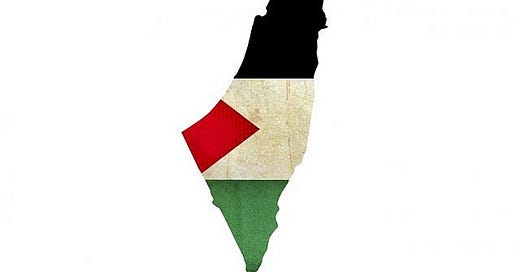Tayyib Finance: Divestment Edition
Ethical investors everywhere ought to stand on the side of justice by voting with their money against the ongoing genocide in Palestine.
Gaza has been under a vicious attack for too many agonising months now. In large part owing to the recent explicitness of Israeli officials, there is no longer any doubt that what the world is witnessing in Palestine is a genocide, one that started over 75 years ago. And for nearly as long, there have been companies working with Israel and in it, mainly the occupied Palestinian land, profiting from and simultaneously bankrolling the genocidal regime.
Apart from Israeli businesses — many of whom across sectors are inherently complicit in the decades-long colonisation project — the culprits are mostly Western companies, with few Asian specimens. Their operating within occupied Palestine stands in stark contrast to their publicised sustainability credentials.
Such duplicity is also revealing of the unreliability of agencies that rate companies on environmental, social, and governance (ESG) factors — most prominently, Sustainalytics following its U-turn on the assessment of businesses operating within the occupied territories (though other outlets like MSCI, S&P, Fitch and Moody’s are too being targeted by the Zionist lobby under the perpetual pretext of “fighting against antisemitism”).
In focus for ESG investors is the shortlist promoted by Boycott, Divestment, Sanctions (BDS), a Palestinian civil movement, which purposefully consists of “a relatively small number of carefully selected companies” to maximise the potential impact. These businesses are being targeted because of indisputable evidence of their crimes against Palestinians inside the occupied territories as well as Israel.
Here I cover two main groups of offending companies as categorised by BDS.
Category I: Divestment targets
The nine publicly traded companies listed below have been singled out by BDS for particularly harmful activities — such as weapons manufacturing (and their delivery to Israel), construction on occupied land, providing services to the settlements and surveillance equipment used on indigenous Palestinians.
The confounding part is that these offences are a far departure from the ESG ratings of the same companies. Despite a range of overall scores as assessed by Refinitiv, none of the businesses (except for Barclays) have received anything less than an A on “Controversies”, made up of 23 measures — including ones that count “critical countries” and “human rights” issues which by all rights should easily apply to any company helping Israel further its apartheid agenda.
(This is but a tiny fraction of the entire list of involved businesses — more fully compiled by the United Nations High Commissioner for Human Rights in 2020 and WhoProfits, a research centre solely devoted to unveiling corporate involvement in the occupation.)
Although large-scale institutional divesting is obviously capable of making a bigger dent in the Israeli apartheid economy, retail investors can do their part by taking care not to put money in these and other complicit companies, be it individual stocks or funds that contain them.
Category II: Boycott targets
The companies in the second group make products meant for either personal consumption or business use, hence the call for a boycott against them. PUMA, for instance, is the third largest manufacturer of sporting goods, and Carrefour operates grocery stores in more than 30 countries. Boycotting aside, investors are able to make a difference by not trading these companies which all happen to be listed on major global exchanges.
And here too there is a big disconnect between sustainability ratings flaunted by the companies and their actual record of legal violations in the occupied Palestinian territories. This is evident, among others, in how Re/Max Holdings, a bottom tiered firm according to Refinitiv, still manages to score ‘Low Risk’ on the now compromised platform of Sustainalytics.
(Note that Israel’s SodaStream sold its sparkling water making business to PepsiCo in a deal valued at $3.2bn. Another long-timer on the BDS consumer boycott list, Israeli cosmetics brand Ahava was acquired by a Chinese conglomerate Fosun International for $77mn. It is a given that parent companies assume the responsibility for their subsidiaries’ transgressions.)
Takeaway
Tayyib Finance is normally meant for Muslim investors (who follow Islamic prescriptions and proscriptions on investing) but the calamity that has befallen Palestine at the hands of the State of Israel — not unlike South Africa under the apartheid regime and, before that, the Jews in the Holocaust perpetrated by the Nazis — is a matter that concerns all thinking human beings, regardless of belief or lack thereof. Investors specifically must exercise choice through channelling their money judiciously to avoid stocks of companies involved in any abuses against the Palestinian people.







Update on PUMA, 12 Dec 2023: https://www.aljazeera.com/news/2023/12/12/puma-to-end-sponsorship-of-israels-national-football-team-in-2024 PUMA has decided to pull out, although it is cowardly of the company to not admit the real reason for the move and condemn Israel for its war crimes.